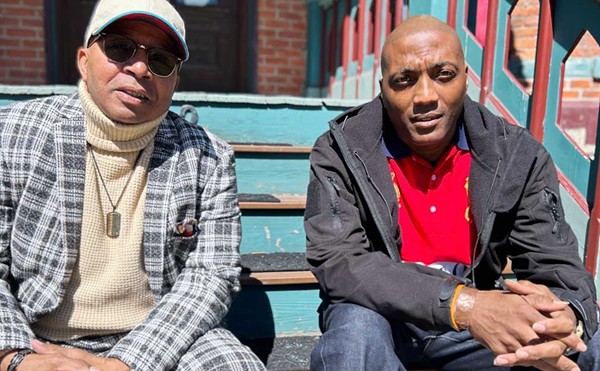When Dr. Jack Kevorkian walked free last week, years after he should have been released from prison, the sneering armchair critics instantly began bashing him, before he had a chance to utter a word.
That's what happens to any pioneer.
There were many who said piously that, yes, Kevorkian may have got the debate going, made us think about how we die. But he was just too awful and too in-your-face and, anyway, the world has passed him by. (Hasn't it?)
One Arthur Caplan, a pompous bioethics professor at the University of Pennsylvania, was typical of the worst of these. Noting that polls still show vast support for Kevorkian's suicide assistance, he, in a column posted on MSNBC, grudgingly sniffs that some think the old dripper may have had his uses.
"To be fair, there are those who admire Kevorkian as the lightning rod who changed how Americans view both the care of the dying and assisted suicide. After all, didn't he bring these issues center stage in courtrooms, state legislatures and the media? No one else did more than he did to promote [that.]"
But Caplan immediately says we should see him instead as "a very dangerous killer," a "fanatic" and a "zealot who could rally public opinion but not shape it." Caplan is so hysterically upset by the mere thought of Kevorkian that his column is full of factual errors from the very first sentence, in which he hopelessly confuses the year and location of one of the cases. "We don't need to hear any more from Dr. Kevorkian," he screams.
Calm down, Artie. Have a Miltown. What this tells you, of course, is more about Caplan's psychology than Jack Kevorkian's. Now I want to make it clear that I am not an apologist for Kevorkian, though I have been accused of so being.
I haven't seen him since he went to prison and haven't really spoken to him in years. I have written that his decision to commit euthanasia, throw it in the prosecutor's face and defend himself was irresponsible, self-destructive and, worse, damaging to those who needed his help. My understanding, in fact, is that he is angry with me. However, you know what?
That doesn't matter. What I think does not really matter any more than it matters whether or not you like his paintings or his blue cardigan sweater.
What matters is that he did something for freedom.
For a few years, Kevorkian was an authentic hero and pioneer of modern medicine. There are, and were, lots of people kept alive by medicine long past the point where their lives have any meaning. Many want to die and want a doctor to help them do so, if only so that they don't die in pain or bungle the job.
Lots of people have known this for decades. Nobody, however, had the guts to do anything about it. A few timid people met in the late Janet Good's living room in the 1980s and called themselves the Michigan chapter of the Hemlock Society and talked about it. And talked and talked and talked. Maybe a few knew of a sympathetic doctor who just might help you slip off if he thought he wouldn't get caught.
But nobody did anything publicly. Not till Jack Kevorkian threw it in their faces in 1990; helped a woman who wanted to die, and did it again and again.
That's how civilization always progresses.
Someone stands up, does something, and is usually crucified for it, a century before their courage becomes the new orthodoxy. In this case, thanks to a brilliant courtroom lawyer named Geoffrey Fieger, Kevorkian was able to take his case to the people, not the courtroom and medical establishment.
Back in the 1990s, I sat through every one of the Fieger-Kevorkian trials, and they kicked the establishment's ass, again and again and again.
What I wish is that — when the prosecutors finally gave up — Kevorkian would have accepted how much he had accomplished, and built on that.
Long before he did anything, he outlined an impressive model system with ethical safeguards for determining which patients should be eligible.
Kevorkian should have worked on recruiting other physicians. Instead, he and those who supported him lost pretty much all they had gained.
Yet he accomplished far more than he may even know. When my father died in his 80s, coughing his lungs up, the hospital doctors paid him little attention and did not want to give him as much morphine as he needed.
That was soon after Kevorkian began assisting suicides. When my mother died last year in her 80s, coughing her lungs up in much the same way, the doctors at the same hospital were far more solicitous, and gave her all the morphine she needed or wanted for her comfort.
That's in large part because of him. Physician-assisted suicide is now legal in Oregon, for much the same reasons. Jack Kevorkian is not an easy man to hang out with. You don't want to go to the beach with him. But the world has been repeatedly changed by difficult people like him and Thomas Paine and Henry Ford. Not to mention that guy long ago who used to preach in Galilee.
My fault: Last week, in discussing the Federal (Gasoline) Price Gouging Prevention Act passed by the House, I said incorrectly that it had won support "from all Michigan members except Joe Knollenberg, who backed the oil company interests, as you might expect."
The congressman accurately protested that six other outstate Republicans had joined him in voting against it. Indeed, I knew that, and meant to write "all Michigan members from this part of the state." The two Republican representatives in the Detroit area, Thaddeus McCotter and Candice Miller, voted for the bill, which passed by a margin of 2-1.
No excuse for my error, except that I was probably rushing to get to the pump before gas went up another dime. Knollenberg also denied piously, if less convincingly, that he was in bed with the oil industry: "While I am very concerned about rising gas prices and their impact on our economy and middle-class families, I opposed this legislation because I believe it would lead to price controls, rationing and even higher gas prices at the pump ... The best way to reduce gas prices is to create viable alternative fuel technology like plug-in hybrids, clean diesels, and biodiesel vehicles." That's from an e-mail relayed, if not actually written by, his chief of staff, Trent Wisecup.
Based on his spoken words and voting records before last year, that's a fast about-face for Old Joe, and no wonder. Last year, he was nearly beaten by an underfunded and inexperienced opponent who took the very position outlined in the e-mail.
Suddenly, Joe, whose early years in Congress were mainly distinguished by a quixotic crusade against environmentally friendly low-flush toilets, seems to be going green. Is it sincere? Yeah, sure, honey. What is especially amusing is the sudden conversion of a number of Republicans who are against keeping oil prices low because, they say, high prices will stimulate alternative energy.
Yet, do you see them sponsoring bills to give some poor cook at Nello's Diner a Prius? There are a lot of low-wage workers whose lives are becoming more desperate because of the price of gas. They can't hang on until a Hydrogen Focus comes on the market for $13,000. When I see Joe and his pals successfully sponsoring any bill that does something for the struggling wage earner, I promise to personally buy each of them their own Clivus Multrum.
Jack Lessenberry opines weekly for Metro Times. Contact him at [email protected]




